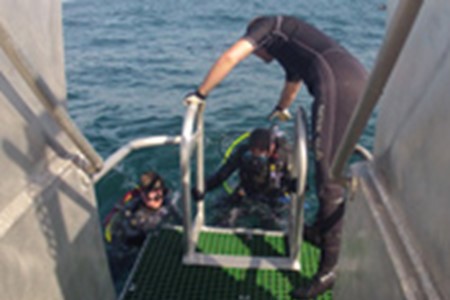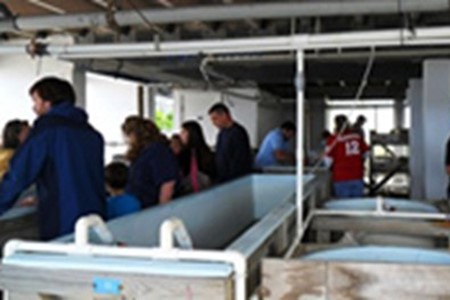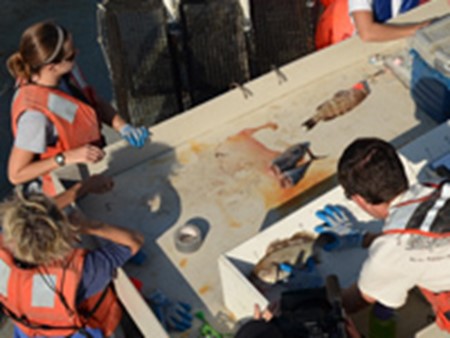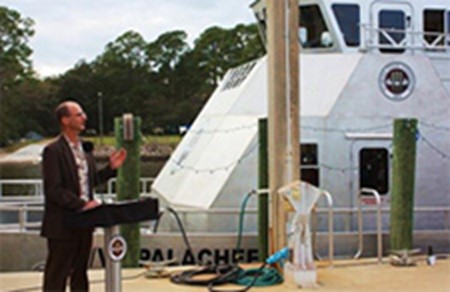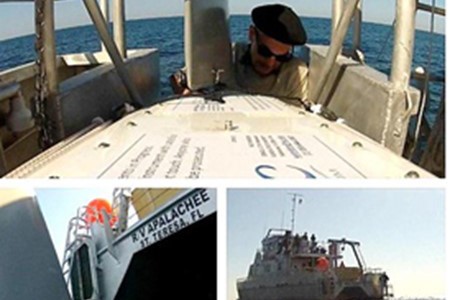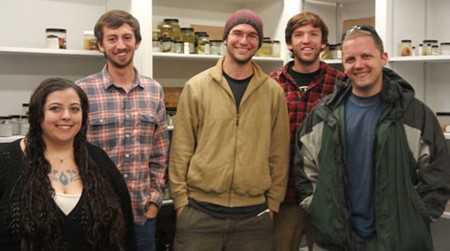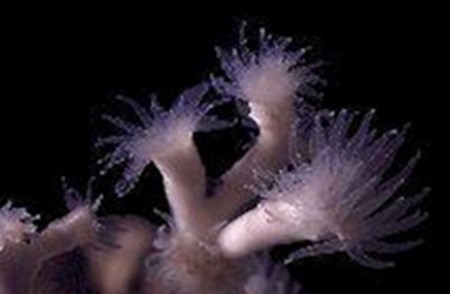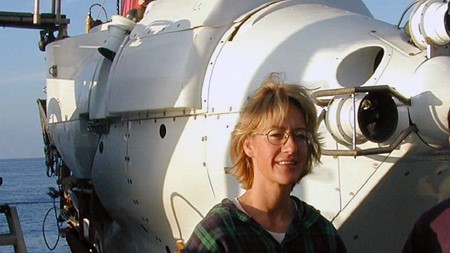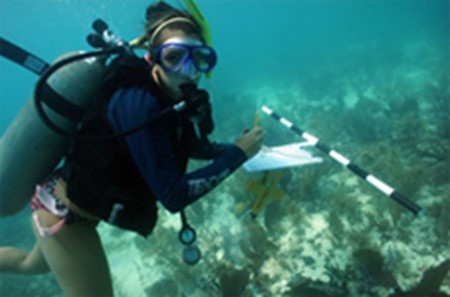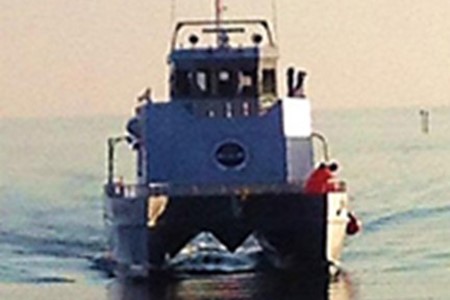On Wednesday, April 24, 2013, history was made! The Academic Diving Program (ADP), consisting of Alex Chequer, Sonja Bridges, and a few of their students, was accompanied by the Marine Field Group on the very first dive taken from the R/V APALACHEE. They traveled from the lab to K-Tower and it was a sight to behold with the clear blue skies above and calm, blue waters below. The dive platforms worked out perfectly. This was just the first of many dive trips to come from the R/V APALACHEE. The ADP plans on utilizing it in many of their future dives.
2013 FSUCML Open House Went Swimmingly!
On Saturday, April 20, 2013 the FSU Coastal & Marine Lab hosted its Biennial Open House. This year is no different in that the event was a huge hit. The activities included touch tanks, scavenger hunt and crafts for the kids, oyster tonging, silent auction, tours of the R/V APALACHEE, tons of displays from the scientists on their research, as well as outside organizations, and much, much more! We had a total of 1038 people come through and everyone seemed to be really enjoying themselves and learning something. Thank you to everyone who came out and for those of you that contributed to the silent auction, sponsored our event, or volunteered your time! We can't wait to see everyone again in two years at our next Open House.

